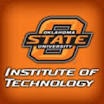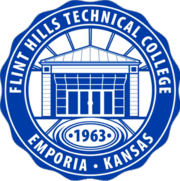What do they do?
Monitor and control activities associated with hydropower generation. Operate plant equipment, such as turbines, pumps, valves, gates, fans, electric control boards, and battery banks. Monitor equipment operation and performance and make necessary adjustments to ensure optimal performance. Perform equipment maintenance and repair as necessary.
Also known as:
Communications and Instrumentation Mechanic (C and I Mechanic), Hydro Mechanic, Hydro Operator, Hydro Plant Technician (Hydro Plant Tech), Hydro Technician (Hydro Tech), Hydroelectric Mechanic, Hydroelectric Operations and Maintenance Technician (Hydro O and M Technician), Hydroelectric Operator, Hydroelectric Plant Mechanic, Hydroelectric Plant Operator, Hydroelectric Plant Technician (Hydroelectric Plant Tech), Operations and Maintenance Technician (O and M Technician), Plant Mechanic, Power Plant Mechanic, Power Plant Operator, Power Plant Technician (Power Plant Tech), Traveling Operator
-
-12.8%
Change
Ranks #54 in job growth rate60Job Openings
Ranks #12 in net job growth
Looking for colleges that offer a specific major? Use the College Match Tool to find your best-matched schools and discover your estimated Net Price!
- Some college, no degree (31%)
- High school diploma equivalent (24%)
- Associate's degree (20%)
- Bachelor's degree (19%)
- Master's degree (4%)
- Less than high school diploma (2%)
- Doctorate or Professional Degree (<1%)
People in this career often have these skills:
- Critical Thinking - Using logic and reasoning to identify the strengths and weaknesses of alternative solutions, conclusions, or approaches to problems.
- Operations Monitoring - Watching gauges, dials, or other indicators to make sure a machine is working properly.
- Equipment Maintenance - Performing routine maintenance on equipment and determining when and what kind of maintenance is needed.
- Operation and Control - Controlling operations of equipment or systems.
- Monitoring - Monitoring/Assessing performance of yourself, other individuals, or organizations to make improvements or take corrective action.
- Repairing - Repairing machines or systems using the needed tools.
- Troubleshooting - Determining causes of operating errors and deciding what to do about it.
People in this career often know a lot about:
- Mechanical - Knowledge of machines and tools, including their designs, uses, repair, and maintenance.
- Public Safety and Security - Knowledge of relevant equipment, policies, procedures, and strategies to promote effective local, state, or national security operations for the protection of people, data, property, and institutions.
- Mathematics - Knowledge of arithmetic, algebra, geometry, calculus, statistics, and their applications.
- Engineering and Technology - Knowledge of the practical application of engineering science and technology. This includes applying principles, techniques, procedures, and equipment to the design and production of various goods and services.
- Education and Training - Knowledge of principles and methods for curriculum and training design, teaching and instruction for individuals and groups, and the measurement of training effects.
- Design - Knowledge of design techniques, tools, and principles involved in production of precision technical plans, blueprints, drawings, and models.
- Computers and Electronics - Knowledge of circuit boards, processors, chips, electronic equipment, and computer hardware and software, including applications and programming.
- English Language - Knowledge of the structure and content of the English language including the meaning and spelling of words, and rules of composition and grammar.
- Physics - Knowledge and prediction of physical principles, laws, their interrelationships, and applications to understanding fluid, material, and atmospheric dynamics, and mechanical, electrical, atomic and sub-atomic structures and processes.
- Building and Construction - Knowledge of materials, methods, and the tools involved in the construction or repair of houses, buildings, or other structures such as highways and roads.
- Administration and Management - Knowledge of business and management principles involved in strategic planning, resource allocation, human resources modeling, leadership technique, production methods, and coordination of people and resources.
- Production and Processing - Knowledge of raw materials, production processes, quality control, costs, and other techniques for maximizing the effective manufacture and distribution of goods.
- Law and Government - Knowledge of laws, legal codes, court procedures, precedents, government regulations, executive orders, agency rules, and the democratic political process.
- Transportation - Knowledge of principles and methods for moving people or goods by air, rail, sea, or road, including the relative costs and benefits.
- Administrative - Knowledge of administrative and office procedures and systems such as word processing, managing files and records, stenography and transcription, designing forms, and workplace terminology.
- Telecommunications - Knowledge of transmission, broadcasting, switching, control, and operation of telecommunications systems.
People in this career often have talent in:
- Problem Sensitivity - The ability to tell when something is wrong or is likely to go wrong. It does not involve solving the problem, only recognizing that there is a problem.
- Near Vision - The ability to see details at close range (within a few feet of the observer).
- Information Ordering - The ability to arrange things or actions in a certain order or pattern according to a specific rule or set of rules (e.g., patterns of numbers, letters, words, pictures, mathematical operations).
- Control Precision - The ability to quickly and repeatedly adjust the controls of a machine or a vehicle to exact positions.
- Oral Comprehension - The ability to listen to and understand information and ideas presented through spoken words and sentences.
- Deductive Reasoning - The ability to apply general rules to specific problems to produce answers that make sense.
- Inductive Reasoning - The ability to combine pieces of information to form general rules or conclusions (includes finding a relationship among seemingly unrelated events).
- Selective Attention - The ability to concentrate on a task over a period of time without being distracted.
- Oral Expression - The ability to communicate information and ideas in speaking so others will understand.
- Perceptual Speed - The ability to quickly and accurately compare similarities and differences among sets of letters, numbers, objects, pictures, or patterns. The things to be compared may be presented at the same time or one after the other. This ability also includes comparing a presented object with a remembered object.
- Visualization - The ability to imagine how something will look after it is moved around or when its parts are moved or rearranged.
- Speech Recognition - The ability to identify and understand the speech of another person.
People in this career often do these activities:
- Monitor equipment operation to ensure that products are not flawed.
- Diagnose equipment malfunctions.
- Operate energy production equipment.
- Clean work areas.
- Inspect sustainable energy production facilities or equipment.
- Exchange information with colleagues.
- Operate pumping systems or equipment.
- Maintain sustainable energy production equipment.
- Assemble electromechanical or hydraulic systems.
- Install mechanical components in production equipment.
- Lubricate production equipment.
- Record operational or production data.
- Solder parts or workpieces.
- Operate welding equipment.
- Lift materials or workpieces using cranes or other lifting equipment.
- Connect supply lines to production equipment or tools.
- Test electrical equipment or systems to ensure proper functioning.
- Repair production equipment or tools.
- Assemble temporary equipment or structures.
- Cut industrial materials in preparation for fabrication or processing.
This page includes data from:

 Occupation statistics: USDOL U.S. Bureau of Labor Statistics Occupational Employment Statistics
Occupation statistics: USDOL U.S. Bureau of Labor Statistics Occupational Employment Statistics
 Videos: CareerOneStop, USDOL/ETA and the Minnesota Department of Employment & Economic Development
Videos: CareerOneStop, USDOL/ETA and the Minnesota Department of Employment & Economic Development







